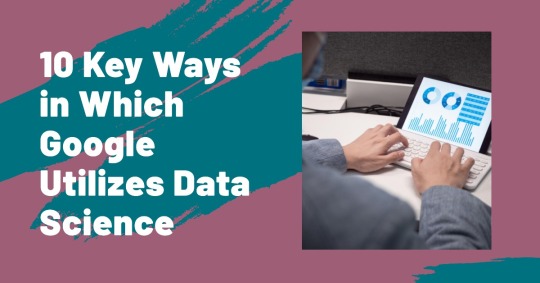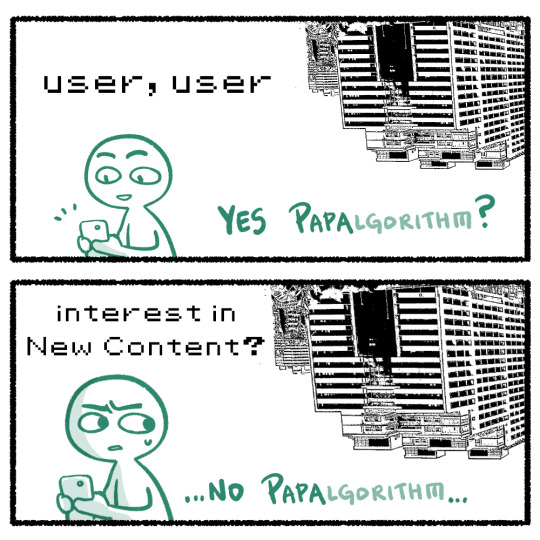#search algorithms
Explore tagged Tumblr posts
Text
Why You Can’t Find WPS.News on Google—and Why Subscribing Matters
By Our International CorrespondentJune 22, 2025 Searching for WPS.News on Google to learn about India, Pakistan, and China’s recent tensions often leads to a dead end. This small outlet, which could offer unique insights into South Asia’s complex conflicts, is nearly invisible in search results, making it tough to access reliable information. This issue highlights why subscribing directly to…
#China news#cyber warfare#geopolitics#Google AI#Google search#India Pakistan conflict#information access#media subscription#news visibility#OSINT#regional news#search algorithms#South Asia news#subscription importance#WPS News
0 notes
Text
🚀 Exciting news! Google has launched Gemini 2.0 and AI Mode, transforming how we search. Get ready for faster, smarter responses to complex queries! Explore the future of AI in search today! #GoogleAI #Gemini2 #AIMode #SearchInnovation
#accessibility features.#advanced mathematics#advanced reasoning#AI Mode#AI Overviews#AI Premium#AI Technology#AI-driven responses#coding assistance#data sources#digital marketing#fact-checking#Gemini 2.0#Google AI#Google One#image input#information synthesis#Knowledge Graph#multimodal search#Query Fan-Out#response accuracy#search algorithms#search enhancement#search innovation#text interaction#User Engagement#voice interaction
0 notes
Text
Webpages essentially inserted in search engines by exploiting search algorithm issue or deficiencies intended to be returned as search results and trigger or lead to attacks
0 notes
Text
SearchGPT - Possibly The Next Big Disruption in Search, SEO and Advertising
SearchGPT - Possibly The Next Big Disruption in Search, SEO and Advertising
The digital landscape is on the brink of a massive upheaval with the introduction of SearchGPT. This isn’t just another search engine; it’s poised to redefine how we access information, threatening the dominance of Google and shaking up the advertising world. For advertisers, this means an urgent need to adapt or risk falling behind. SEO and SEM strategies will need to pivot dramatically to…
#advertising disruption#Apple collaboration#Apple Intelligence#consumer behavior shift#digital landscape#Google competition#Microsoft Bing#OpenAI#search algorithms#search engine innovation#SearchGPT#SEM#SEO#technology disruption
0 notes
Text
"...it also revealed the emptiness of Google’s new approach to search. Without any knowledge base of its own, the company’s large language model simply summarizes and regurgitates what it finds on the web according to unknown criteria — an approach Today in Tabs’ Rusty Foster accurately calls automated plagiarism.
Google blamed all this on its users, Kylie Robison reported at The Verge:Google spokesperson Meghann Farnsworth said the mistakes came from “generally very uncommon queries, and aren’t representative of most people’s experiences.” The company has taken action against violations of its policies, she said, and are using these “isolated examples” to continue to refine the product.
… plenty of these queries were common enough. Asking about the race or religion of US presidents, or how to get cheese to stick to pizza, are straightforward uses of Google that the previous, non-AI-degraded version of the search engine handled just fine.
But even then, Foster’s criticism will still stand: those “overviews” really are just slightly reworded versions of journalists’ copy, designed to give people ever fewer reasons to step outside Google’s walled garden. This is what I mean when I say that the web has entered a state of managed decline: one company has outsized influence over when and how people visit any websites at all, and it has told us it plans to gradually ratchet those visits down by continuing to answer more questions on the search engine results page."
0 notes
Text
10 Key Ways in Which Google Utilizes Data Science
Google relies on data science as it underpins the company’s ability to innovate, optimize, and provide valuable services. With an immense amount of user-generated data at its disposal, data science enables Google to enhance its core products like search, advertising, and recommendations, delivering a more personalized and efficient experience. It’s crucial for staying competitive, improving user…

View On WordPress
#Ad Targeting#Data Center Optimization#Data Science#Google#Image Analysis#Natural Language Processing#Search Algorithms#Security#Video Analysis
0 notes
Text






❄️☃️The SDV Girlies in their winter garb!☃️❄️
One side how i interpreted their lil avatars and then the other side is just me playing dress up lmao.
“Bois when?” Dunno. 🤷🏽♀️ I will if anyone donates screenshots.
#stardew valley#stardew valley 1.6#stardew valley winter#stardew valley maru#stardew valley haley#stardew valley penny#stardew valley leah#stardew valley emily#stardew valley abigail#sdv maru#sdv haley#sdv penny#sdv leah#sdv emily#sdv abigail#i was sweating drawing this#the ph is having a fucking heatwave at 40*C / 104*C#and i’m not even living in the city where its definitely worse!!!#my pinterest algorithm probably thinks i’m insane for searching up winter outfits#penny looking lightly dressed for winter in her 2nd lewk but she’s dressed in several layers in dresses and skirts#i just wanted to show a lil bit of the layered neckline#ngl my fave lewk has to be emily!#she probably made her whole ensamble from scratch#abgail probably goes around lightly dressed#‘cold never bothered her anyway’ -elsa#haley going from cocnut girl to cold girl aesthetic#also i based maru’s outfit in this really cool chinese obre puffer jacket + 90s pastel tracksuit#with leah… what can i say gay in primary colors#thank you to henarikat for sending me a screenshot of their avatars!!!!!!#and also for being a beta for Haley and Penny’s looks hahaha
5K notes
·
View notes
Note
what was done to make the legalization of gay marriage damaging there?
They ran a plebiscite, which is like a non mandatory opinion poll for the country
The thing was, the public demand from queer groups for gay marriage to be legal was so so high in 2017. 2017! Not ten years ago, of course it was common to be okay w gay marriage.
The Labor party were in opposition and had fairly calmly promised to legalise next time they were in power. The Coalition, who were in power, reaaallly didn't want to tho. Cos they're homophobes. But demand was so high that had to do something, so they did a plebiscite
Firstly, gay rights is not such a complex matter that the government can't figure it out themselves. We vote for them to represent us, this was the coalition going mmmm I don't wanna represent that, gross. Can the population do it for me?
Secondly, queer people are a minority. We're meant to be protected by the government. The government, the coalition, did not protect their citizens
What it meant was a public debate, with tv required to air equal weight to each side. And the coalition, the Australian government, ran vote no ads
So we had a big old public debate. With the coalition getting to hate on gay kids and tag it with 'sponsored by the Australian government, Canberra' tag at the end. It's very hard to find examples of this now, but different ads ran all night long. The love the community tried to pour out was not worth the hate that was supported to speak
This is an ad that ran before the plebiscite was announced, explaining the danger it could have
Here's the foreign minister being shown an ad that tells people to vote no, and her saying it's fine for that to play on prime time tv. It's wild, watch it
No gay organisation wanted the plebiscite. Once it happened they pulled their socks up and campaigned, of course, but it was devastating and devisive. I started wearing a rainbow flag as a wee 22ish year old and people threw slurs. The cruelty was on the street like it never had been before, and didn't need to be
The plebiscite passed with a yes vote

I can remember a lot of reporting around how 61.6% (yes votes) of 79.5% (total votes) is less than half. Less than half of the country gave enough of a shit to vote yes put the letter back in the mail box. Cunts.
The government then didn't pass it into law! No, they had a conscience vote, which means the ministers are not required to vote down party lines but can vote freely with no repercussions. Labor, in opposition, voted mostly yes. The coalition split the vote, but it did get over and gay marriage was dragged into law
Obviously it's good that we have gay marriage
Idve prefered we didn't subject our community to government sponsored vitriol for it. And I won't forgive the coalition ever. They are cowards. I would have absolutely preferred to wait three years and make an election of it
And I hate that they get to say they moved the country forward with this liberal equal rights agenda. Cos they didn't. They looked at their job, which is to make law, and found a novel way to step on the queers a little before doing that
#auspol#homophobia#i appreciate you asking!#even you if youve made me fuck up my youtube algorithm by searching for no ads lol#these kind of national debates arent how we do politics and law#we have representative politicians for a damned reason
507 notes
·
View notes
Text
Even if you think AI search could be good, it won’t be good

TONIGHT (May 15), I'm in NORTH HOLLYWOOD for a screening of STEPHANIE KELTON'S FINDING THE MONEY; FRIDAY (May 17), I'm at the INTERNET ARCHIVE in SAN FRANCISCO to keynote the 10th anniversary of the AUTHORS ALLIANCE.

The big news in search this week is that Google is continuing its transition to "AI search" – instead of typing in search terms and getting links to websites, you'll ask Google a question and an AI will compose an answer based on things it finds on the web:
https://blog.google/products/search/generative-ai-google-search-may-2024/
Google bills this as "let Google do the googling for you." Rather than searching the web yourself, you'll delegate this task to Google. Hidden in this pitch is a tacit admission that Google is no longer a convenient or reliable way to retrieve information, drowning as it is in AI-generated spam, poorly labeled ads, and SEO garbage:
https://pluralistic.net/2024/05/03/keyword-swarming/#site-reputation-abuse
Googling used to be easy: type in a query, get back a screen of highly relevant results. Today, clicking the top links will take you to sites that paid for placement at the top of the screen (rather than the sites that best match your query). Clicking further down will get you scams, AI slop, or bulk-produced SEO nonsense.
AI-powered search promises to fix this, not by making Google search results better, but by having a bot sort through the search results and discard the nonsense that Google will continue to serve up, and summarize the high quality results.
Now, there are plenty of obvious objections to this plan. For starters, why wouldn't Google just make its search results better? Rather than building a LLM for the sole purpose of sorting through the garbage Google is either paid or tricked into serving up, why not just stop serving up garbage? We know that's possible, because other search engines serve really good results by paying for access to Google's back-end and then filtering the results:
https://pluralistic.net/2024/04/04/teach-me-how-to-shruggie/#kagi
Another obvious objection: why would anyone write the web if the only purpose for doing so is to feed a bot that will summarize what you've written without sending anyone to your webpage? Whether you're a commercial publisher hoping to make money from advertising or subscriptions, or – like me – an open access publisher hoping to change people's minds, why would you invite Google to summarize your work without ever showing it to internet users? Nevermind how unfair that is, think about how implausible it is: if this is the way Google will work in the future, why wouldn't every publisher just block Google's crawler?
A third obvious objection: AI is bad. Not morally bad (though maybe morally bad, too!), but technically bad. It "hallucinates" nonsense answers, including dangerous nonsense. It's a supremely confident liar that can get you killed:
https://www.theguardian.com/technology/2023/sep/01/mushroom-pickers-urged-to-avoid-foraging-books-on-amazon-that-appear-to-be-written-by-ai
The promises of AI are grossly oversold, including the promises Google makes, like its claim that its AI had discovered millions of useful new materials. In reality, the number of useful new materials Deepmind had discovered was zero:
https://pluralistic.net/2024/04/23/maximal-plausibility/#reverse-centaurs
This is true of all of AI's most impressive demos. Often, "AI" turns out to be low-waged human workers in a distant call-center pretending to be robots:
https://pluralistic.net/2024/01/31/neural-interface-beta-tester/#tailfins
Sometimes, the AI robot dancing on stage turns out to literally be just a person in a robot suit pretending to be a robot:
https://pluralistic.net/2024/01/29/pay-no-attention/#to-the-little-man-behind-the-curtain
The AI video demos that represent "an existential threat to Hollywood filmmaking" turn out to be so cumbersome as to be practically useless (and vastly inferior to existing production techniques):
https://www.wheresyoured.at/expectations-versus-reality/
But let's take Google at its word. Let's stipulate that:
a) It can't fix search, only add a slop-filtering AI layer on top of it; and
b) The rest of the world will continue to let Google index its pages even if they derive no benefit from doing so; and
c) Google will shortly fix its AI, and all the lies about AI capabilities will be revealed to be premature truths that are finally realized.
AI search is still a bad idea. Because beyond all the obvious reasons that AI search is a terrible idea, there's a subtle – and incurable – defect in this plan: AI search – even excellent AI search – makes it far too easy for Google to cheat us, and Google can't stop cheating us.
Remember: enshittification isn't the result of worse people running tech companies today than in the years when tech services were good and useful. Rather, enshittification is rooted in the collapse of constraints that used to prevent those same people from making their services worse in service to increasing their profit margins:
https://pluralistic.net/2024/03/26/glitchbread/#electronic-shelf-tags
These companies always had the capacity to siphon value away from business customers (like publishers) and end-users (like searchers). That comes with the territory: digital businesses can alter their "business logic" from instant to instant, and for each user, allowing them to change payouts, prices and ranking. I call this "twiddling": turning the knobs on the system's back-end to make sure the house always wins:
https://pluralistic.net/2023/02/19/twiddler/
What changed wasn't the character of the leaders of these businesses, nor their capacity to cheat us. What changed was the consequences for cheating. When the tech companies merged to monopoly, they ceased to fear losing your business to a competitor.
Google's 90% search market share was attained by bribing everyone who operates a service or platform where you might encounter a search box to connect that box to Google. Spending tens of billions of dollars every year to make sure no one ever encounters a non-Google search is a cheaper way to retain your business than making sure Google is the very best search engine:
https://pluralistic.net/2024/02/21/im-feeling-unlucky/#not-up-to-the-task
Competition was once a threat to Google; for years, its mantra was "competition is a click away." Today, competition is all but nonexistent.
Then the surveillance business consolidated into a small number of firms. Two companies dominate the commercial surveillance industry: Google and Meta, and they collude to rig the market:
https://en.wikipedia.org/wiki/Jedi_Blue
That consolidation inevitably leads to regulatory capture: shorn of competitive pressure, the companies that dominate the sector can converge on a single message to policymakers and use their monopoly profits to turn that message into policy:
https://pluralistic.net/2022/06/05/regulatory-capture/
This is why Google doesn't have to worry about privacy laws. They've successfully prevented the passage of a US federal consumer privacy law. The last time the US passed a federal consumer privacy law was in 1988. It's a law that bans video store clerks from telling the newspapers which VHS cassettes you rented:
https://en.wikipedia.org/wiki/Video_Privacy_Protection_Act
In Europe, Google's vast profits lets it fly an Irish flag of convenience, thus taking advantage of Ireland's tolerance for tax evasion and violations of European privacy law:
https://pluralistic.net/2023/05/15/finnegans-snooze/#dirty-old-town
Google doesn't fear competition, it doesn't fear regulation, and it also doesn't fear rival technologies. Google and its fellow Big Tech cartel members have expanded IP law to allow it to prevent third parties from reverse-engineer, hacking, or scraping its services. Google doesn't have to worry about ad-blocking, tracker blocking, or scrapers that filter out Google's lucrative, low-quality results:
https://locusmag.com/2020/09/cory-doctorow-ip/
Google doesn't fear competition, it doesn't fear regulation, it doesn't fear rival technology and it doesn't fear its workers. Google's workforce once enjoyed enormous sway over the company's direction, thanks to their scarcity and market power. But Google has outgrown its dependence on its workers, and lays them off in vast numbers, even as it increases its profits and pisses away tens of billions on stock buybacks:
https://pluralistic.net/2023/11/25/moral-injury/#enshittification
Google is fearless. It doesn't fear losing your business, or being punished by regulators, or being mired in guerrilla warfare with rival engineers. It certainly doesn't fear its workers.
Making search worse is good for Google. Reducing search quality increases the number of queries, and thus ads, that each user must make to find their answers:
https://pluralistic.net/2024/04/24/naming-names/#prabhakar-raghavan
If Google can make things worse for searchers without losing their business, it can make more money for itself. Without the discipline of markets, regulators, tech or workers, it has no impediment to transferring value from searchers and publishers to itself.
Which brings me back to AI search. When Google substitutes its own summaries for links to pages, it creates innumerable opportunities to charge publishers for preferential placement in those summaries.
This is true of any algorithmic feed: while such feeds are important – even vital – for making sense of huge amounts of information, they can also be used to play a high-speed shell-game that makes suckers out of the rest of us:
https://pluralistic.net/2024/05/11/for-you/#the-algorithm-tm
When you trust someone to summarize the truth for you, you become terribly vulnerable to their self-serving lies. In an ideal world, these intermediaries would be "fiduciaries," with a solemn (and legally binding) duty to put your interests ahead of their own:
https://pluralistic.net/2024/05/07/treacherous-computing/#rewilding-the-internet
But Google is clear that its first duty is to its shareholders: not to publishers, not to searchers, not to "partners" or employees.
AI search makes cheating so easy, and Google cheats so much. Indeed, the defects in AI give Google a readymade excuse for any apparent self-dealing: "we didn't tell you a lie because someone paid us to (for example, to recommend a product, or a hotel room, or a political point of view). Sure, they did pay us, but that was just an AI 'hallucination.'"
The existence of well-known AI hallucinations creates a zone of plausible deniability for even more enshittification of Google search. As Madeleine Clare Elish writes, AI serves as a "moral crumple zone":
https://estsjournal.org/index.php/ests/article/view/260
That's why, even if you're willing to believe that Google could make a great AI-based search, we can nevertheless be certain that they won't.

If you'd like an essay-formatted version of this post to read or share, here's a link to it on pluralistic.net, my surveillance-free, ad-free, tracker-free blog:
https://pluralistic.net/2024/05/15/they-trust-me-dumb-fucks/#ai-search

Image: Cryteria (modified) https://commons.wikimedia.org/wiki/File:HAL9000.svg
CC BY 3.0 https://creativecommons.org/licenses/by/3.0/deed.en
--
djhughman https://commons.wikimedia.org/wiki/File:Modular_synthesizer_-_%22Control_Voltage%22_electronic_music_shop_in_Portland_OR_-_School_Photos_PCC_%282015-05-23_12.43.01_by_djhughman%29.jpg
CC BY 2.0 https://creativecommons.org/licenses/by/2.0/deed.en
#pluralistic#twiddling#ai#ai search#enshittification#discipline#google#search#monopolies#moral crumple zones#plausible deniability#algorithmic feeds
1K notes
·
View notes
Text

me when I shed my carapace and I'm reborn again, wiser and stronger. me when I rise from the flames like the glorious Phoenix
#freddy yes gif#I'm really just posting this gif so that it's easier to find on the tumblr gif search thing#I really want people to have access to this one#it's a good gif#icarly#catharsis#yay#win#victory#cheer#applause#there's no actual applause in the gif#I'm lying in the tags because I want to increase the SEO of the gif#it's all about tags the algorithm really isn't all that intelligent#Freddie Benson#That's the guy's name
372 notes
·
View notes
Text

I bring u more screenshots from Facebook suggestions that have seen into my soul
#Current Google search history features my hunt for chainmail patterns and tutorials.#And tips on how to get approval from both Fenris and Anders without angering the other in DA2#And lightsaber shopping.#My algorithms probably think I'm 14 or something
65 notes
·
View notes
Text
Why You Can’t Find WPS.News on Google—and Why Subscribing Matters
By Our International CorrespondentMay 30, 2025 Searching for WPS.News on Google to learn about India, Pakistan, and China’s recent tensions often leads to a dead end. This small outlet, which could shed light on South Asia’s complex conflicts, is nearly invisible in search results, making it tough to access reliable information. This issue highlights why subscribing directly to WPS.News is…
#China news#cyber warfare#geopolitics#Google AI#Google search#India Pakistan conflict#information access#media subscription#news visibility#OSINT#regional news#search algorithms#South Asia news#subscription importance#WPS News
0 notes
Text



#chekhov answers#cant search for something specific about the lore for fear of revealing a New Interest#to the Algorith#which will then fill all your algorithmic feeds with All The Most Recent Popular Posts#i will not say what it is#tumblr culture#fandom#content#comics#chekhov draws#comic
1K notes
·
View notes
Text
Man I haven't been on instagram in a while but HOLY SHIT the search is even more useless than it was the last time I was there
Like the bar is so low it has started tunneling into the earth at this point, folks! I didn't even think it'd be possible for it to be this bad
Forced AI explanation at top describing thing you are searching for (I ALREADY KNOW WHO FELIX THE CAT IS META SHUT UUUP)
Not only is there no way to search by newest, there isn't even a top posts section now, either. There is no way to sort or filter your search at all aside from the tabs at the top.
There is only Reels. There is no normal image post tab AT ALL save for whatever pops up in For You (and For You is also sprinkled with reels)
For You just shows me the same collection of results over and over so if i wanna find new art of something, I'm SOL.
Hashtags are entirely useless. There is a Tags tab in the search, and clicking on any of the relevant ones just leads you right back to the For You tab on the search!
So riddle me this, Batman- How the heck do you find anything new there for specific things you're interested in?? The only option is "For You"! And no, it does not in fact Have It For Me!!
So what are you supposed to do on there if you actively wanna see something? Just sit around and wait, twiddlin your thumbs and hoping that some kinda rng will hand-deliver a crumb of your favorite thing to you every now and then?
Fuck off with that lol
#instagram#I have a level of obsession with very specific things that algorithms apparently have no hope of keeping up with#unfortunately this makes most big social medias completely un-fuckin-usable for me#I don't wanna be spoon fed random shit! I want my blorbos on my desk yesterday!!#if I'm gonna be a boomer about anything it's functional searches and the agency to seek out what we want being systematically taken from us#I stg tumblr better never die because if I lose one of the last sites that has an actual usable search I will Lose It#ok rant over =.=
43 notes
·
View notes
Text
I wonder how the Haiku Bot happens to find posts with Haikus in?
#haiku bot#presumably it's some kind of searching algorithm#but i wonder how it finds so many posts#even the ones with barely any notes#(yes this is a haiku bot trap shhh)
577 notes
·
View notes
Text

Though it’s not hugely prominent, I think Lauren’s style still has that little bit of 80s grunge influence from her teen years.
#I was really struggling to find clothes that fit Lauren right#and then I finally realised hey#why am I not searching for 80s and 90s fashion specifically#and boom instantly found what I was looking for#trouble is Pinterest’s algorithm doesn’t give you much variety. it figures out what you like and serves you the same stuff over and over#which is annoying when you’re looking for a wide variety#but hey I have a lot of outfits I wanna try out on her#todays been a shitshow and it was nice to sit back and draw my baby <3#esp cause I just wasn’t happy with yesterdays drawing of her like the outfit was nice! but I wasn’t sold on the artwork#I like this one better!#hilda#hilda the series#netflix hilda#hilda netflix#art#my art#digital art#fanart#doodle#drawing#Hilda lauren#Lauren hilda#Hilda oc#oc#my oc
119 notes
·
View notes